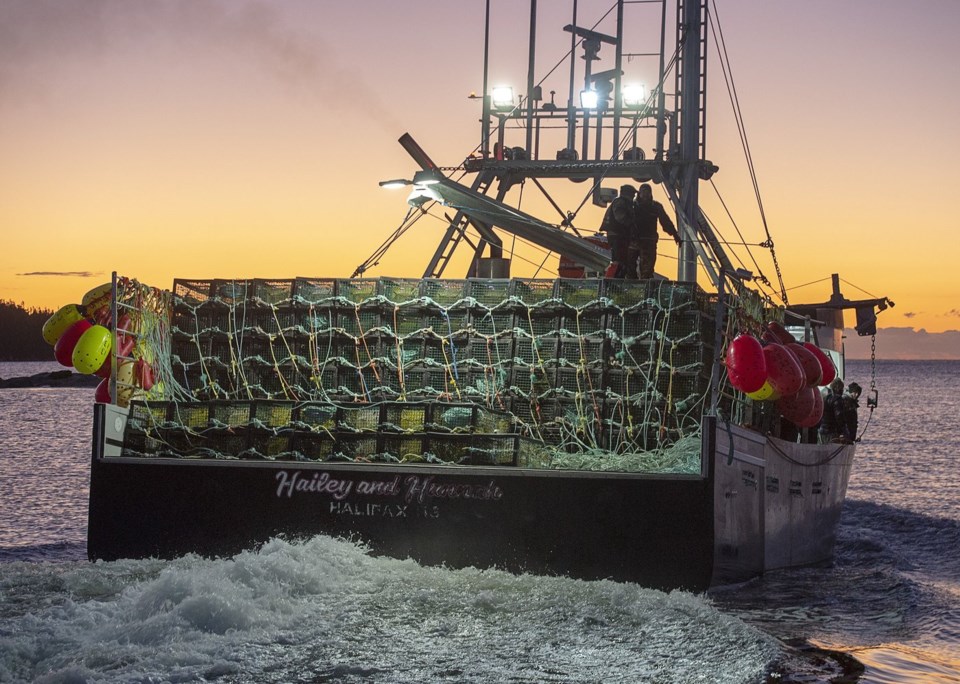HALIFAX — Federal officials say fishery officers have seized more than 1,000 lobster traps off southwestern Nova Scotia since June 1 as part of a crackdown on unauthorized harvesting and illegal sales.
The Fisheries Department says the seizures and resulting arrests are also aimed at ensuring the Indigenous food, social and ceremonial lobster fishery can proceed without interference.
A spokesperson confirmed Wednesday that charges are pending against those arrested, though it could take some time before the alleged offences are brought before the courts. The spokesperson, however, could not say whether any of the seizures or arrests were connected to Indigenous-led fisheries.
The department issued a statement Tuesday saying that in the last three months, officers in southwestern Nova Scotia have inspected 61 holding facilities and released more than 4,400 lobsters from seized traps.
The department’s website says four people were arrested on St. Marys Bay on Aug. 27, and another four were arrested on the bay a day earlier. On Aug. 20, the department says officers boarded a boat on the bay and arrested three people for allegedly fishing lobster without authorization. And on July 31, officers in Yarmouth County seized two lobster fishing boats and arrested six people.
In its statement released Tuesday, the Fisheries Department makes a point of highlighting the Indigenous food, social and ceremonial (FSC) fishery, which was created after a landmark Supreme Court of Canada decision in 1990.
At the time, the court ruled that Ronald Sparrow, a member of the Musqueam First Nation in British Columbia, should not have been convicted of fishing illegally in 1984. The court said he had the ancestral right to fish outside the season under a section of the Charter of Rights and Freedoms that affirms existing Indigenous and treaty rights.
The decision allows First Nations to fish outside the regular commercial season to feed their communities or to supply ceremonial gatherings. But they can't sell what they catch.
For years, some commercial fishermen in Nova Scotia have complained that a small group of Indigenous fishermen have been selling their catches out of season, using the food, social and ceremonial fishery as cover.
"Fishery officers are working to ensure this fishery can proceed without interference," the department said in its statement.
"However, the sale, barter or trade of FSC catch is illegal and subject to Fisheries Act enforcement. Anyone caught selling, buying or offering to buy or sell FSC-caught lobster may be arrested, have their catch and gear seized and be charged."
This report by The Canadian Press was first published Sept. 3, 2025.
Michael MacDonald, The Canadian Press



